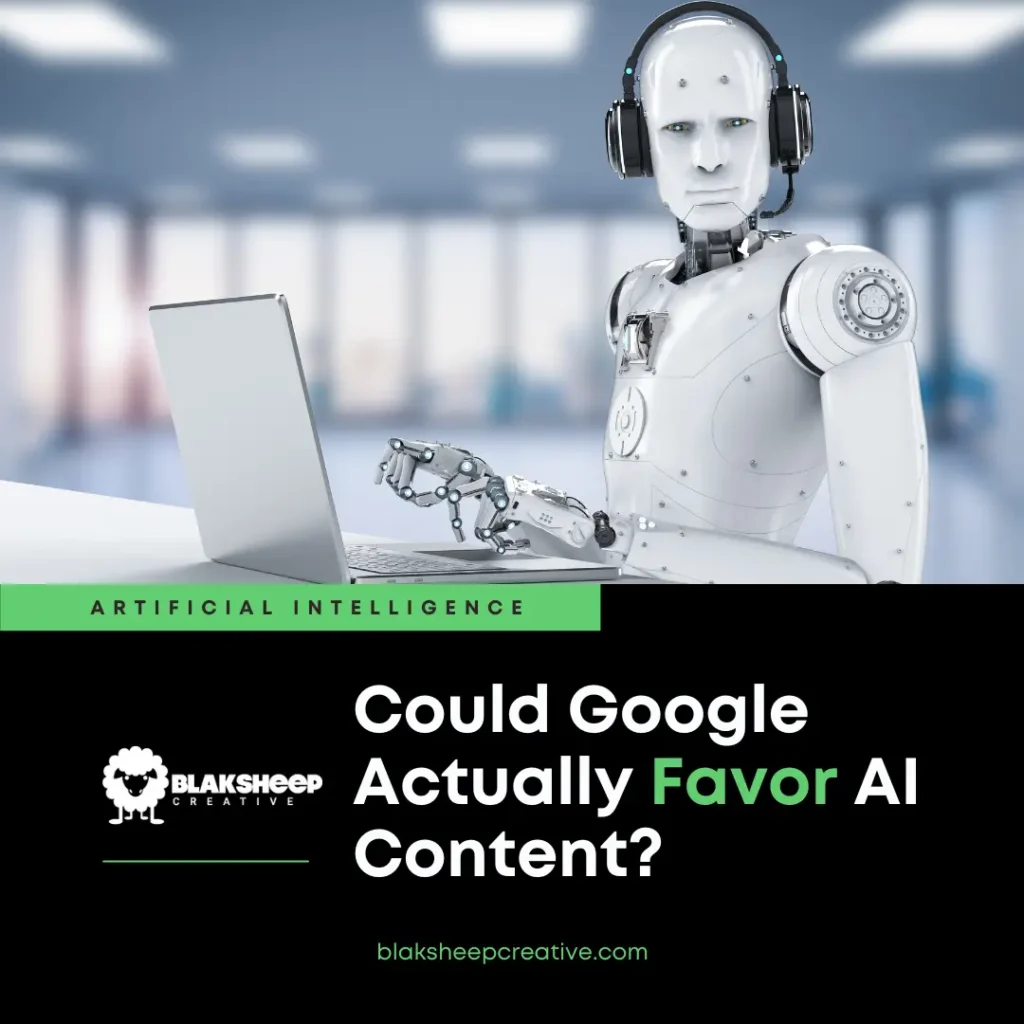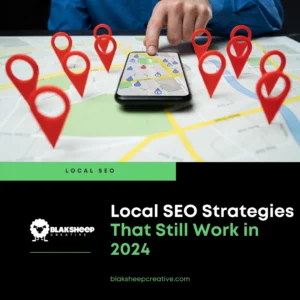In an era where artificial intelligence (AI) is reshaping our digital experiences, including the content we consume online, a significant shift in Google’s approach towards AI-generated content raises thought-provoking questions. Google, a behemoth in the digital age, seems to have evolved its stance on AI-generated content, moving away from outright disapproval to a more nuanced position that focuses on quality and user experience over the method of creation.
First, let’s see what AI has to say…
@blaksheepcreative Is Google Really on Team AI for SEO? 🤖💡#GoogleAIContent ♬ original sound – BlakSheep Creative
The Evolution of Google’s Guidelines
Historically, Google’s Search Essentials (Formerly Webmaster Guidelines) advised against the use of automatically generated content, which could arguably include text produced by AI tools. This position was reflected in a screenshot from the now-defunct Google Webmaster Guidelines page dated April 7th, 2022.
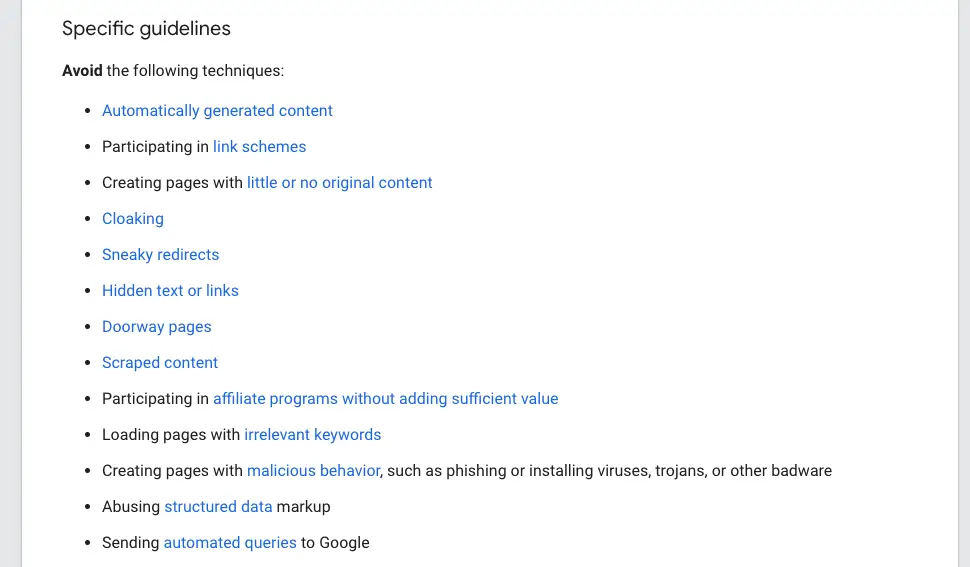
However, by the end of April 2022, following extensive discussions in the SEO community about John Mueller’s comments, Google’s guidance on automatically generated content underwent a significant update. The revised guidelines now emphasized the avoidance of techniques that are “intended to manipulate search rankings,” marking a departure from a blanket prohibition to a more intent-focused approach.
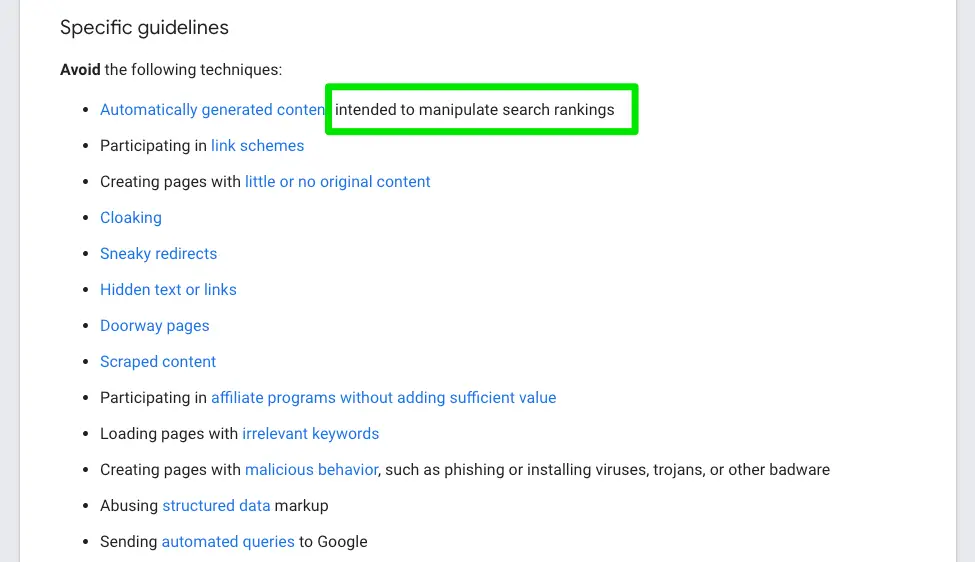
With the introduction of Google Search Essentials, the revamped guidelines no longer explicitly advise against all forms of automatically generated content. The focus has shifted to specifically targeting “Spammy automatically-generated content,” indicating a more lenient stance towards AI-generated content that prioritizes user experience and quality.
Google’s Current Stance on AI-Generated Content
Danny Sullivan, Google’s Public Liaison for Search, clarified in November 2022 that using AI to create content isn’t against Google’s guidelines, provided the content is crafted for humans and not solely for search engines.
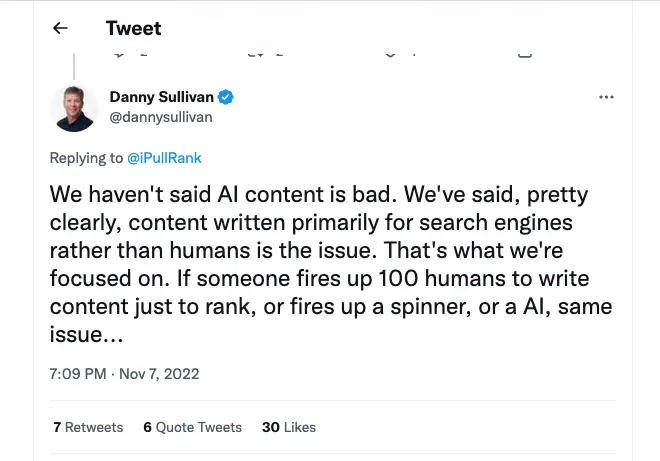
This statement, along with further insights from John Mueller on the acceptable use of AI for creating titles and descriptions, signals Google’s recognition of AI’s potential to contribute positively to web content as long as it maintains a focus on quality and relevance for the user.
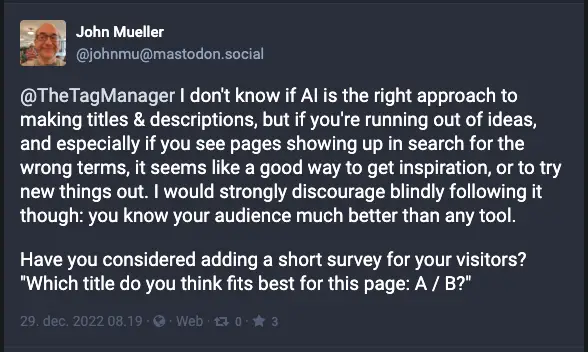
How to Create AI Content Google Loves
Google’s advice for creating content, whether AI-generated or not, remains consistent with its 2022 helpful content update, which advocates for a “people-first” approach. Key considerations include:
- Creating content that serves the needs and interests of your intended audience.
- Demonstrating first-hand expertise and comprehensive knowledge.
- Ensuring your site has a clear primary purpose or focus.
- Providing readers with a satisfying and informative experience.
- Aligning content with Google’s guidance for core updates and product reviews.
Following these guidelines can help ensure that your AI-generated content aligns with Google’s quality expectations and contributes positively to your SEO efforts.
Conclusion: Google’s Refined Approach to AI Text
Google’s evolving stance on AI-generated content reflects a broader recognition of AI’s capabilities and its potential to enrich the digital content landscape. By focusing on the quality and user-centricity of content, regardless of its origin, Google encourages content creators to leverage AI in ways that enhance the user experience. This shift invites a reevaluation of how we approach AI in content creation, emphasizing the importance of crafting content that is both informative and engaging for users rather than focusing solely on search engine optimization.
As AI technology continues to advance, its role in content generation is set to become increasingly prominent, guided by principles that prioritize value, expertise, and user satisfaction above all.
Ready to elevate your SEO strategy with AI-generated content that Google loves? Start creating engaging, high-quality content focused on user satisfaction today. Dive deeper into how AI can enhance your content creation process and align with Google’s guidelines for a future-proof strategy. Embrace the future of content creation—explore AI tools and resources now.
